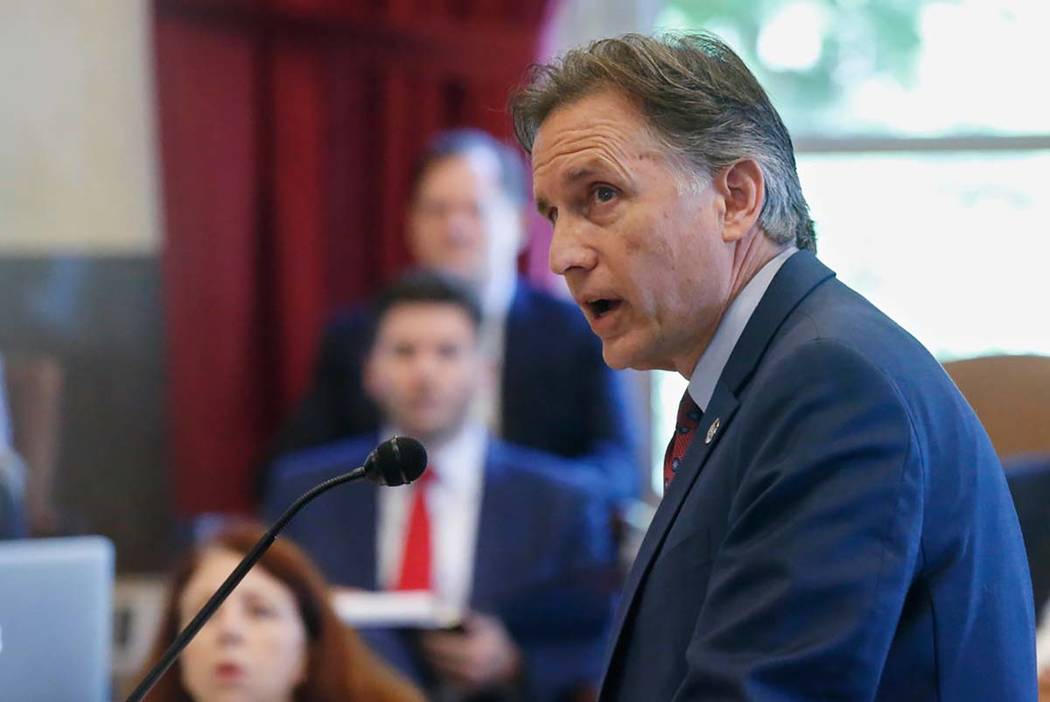Oklahoma judge rules against drugmaker, orders $572M payment
NORMAN, Okla. — An Oklahoma judge on Monday found Johnson & Johnson and its subsidiaries helped fuel the state’s opioid crisis and ordered the consumer products giant to pay $572 million to clean up the problem.
Cleveland County District Judge Thad Balkman’s ruling followed the first state opioid case to make it to trial and could help shape negotiations over roughly 1,500 similar lawsuits filed by state, local and tribal governments consolidated before a federal judge in Ohio.
“The opioid crisis has ravaged the state of Oklahoma,” Balkman said before announcing the verdict. “It must be abated immediately.”
The companies are expected to appeal the ruling to the Oklahoma Supreme Court.
Before Oklahoma’s trial began May 28, Oklahoma reached settlements with two other defendant groups — a $270 million deal with OxyContin-maker Purdue Pharma and an $85 million settlement with Israeli-owned Teva Pharmaceutical Industries Ltd.
Oklahoma argued the companies and their subsidiaries created a public nuisance by launching an aggressive and misleading marketing campaign that overstated how effective the drugs were for treating chronic pain and understated the risk of addiction. Oklahoma Attorney General Mike Hunter says opioid overdoses killed 4,653 people in the state from 2007 to 2017.
Mike Hunter has called Johnson & Johnson a “kingpin” company that was motivated by greed. He specifically pointed to two former Johnson & Johnson subsidiaries, Noramco and Tasmanian Alkaloids, which produced much of the raw opium used by other manufacturers to produce the drugs.
“They’ve been the principal origin for the active pharmaceutical ingredient in prescription opioids in the country for the last two decades,” Hunter said after the trial ended July 15. “It is one of the most important elements of causation with regard to why the defendants … are responsible for the epidemic in the country and in Oklahoma.”
Attorneys for the company have maintained they were part of a lawful and heavily regulated industry subject to strict federal oversight, including the U.S. Drug Enforcement Agency and the Food and Drug Administration, during every step of the supply chain. Lead attorney Larry Ottaway said during closing arguments that opioid drugs serve a critical health need — to address chronic pain that affects thousands of Oklahomans every day.
“This problem of untreated chronic pain afflicts people here in Oklahoma,” Ottaway said.
Oklahoma pursued the case under the state’s public nuisance statute and presented the judge with a plan to abate the crisis that would cost between $12.6 billion for 20 years and $17.5 billion over 30 years. Attorneys for Johnson & Johnson have said that estimate is wildly inflated.

















